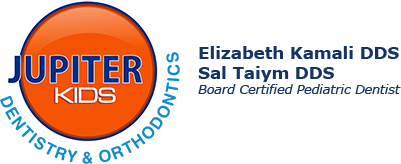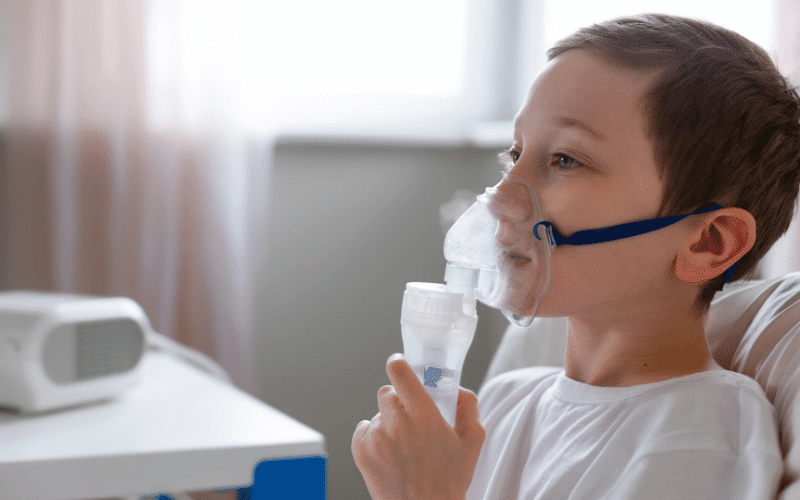For many children, a trip to the dentist can be as fear-inducing as a monster under the bed. The unfamiliar sights, sounds, and sensations can trigger anxiety, making it difficult for them to sit still and cooperate during their checkup. If your child experiences dental anxiety, you’re not alone. Millions of children struggle with this fear, and it can lead to neglected oral health and even dental phobias in adulthood. Fortunately, there’s a safe and effective solution: pediatric sedation dentistry. This specialized approach uses medication to help children relax and feel comfortable during dental procedures. In this blog, we’ll delve into the world of pediatric sedation dentistry, exploring its benefits and how it can transform your child’s dental experience from a nightmare into a positive step toward good oral health.
Understanding Dental Anxiety in Children
Dental anxiety in children is a common concern, and for good reason. Here’s a breakdown of the causes, symptoms, and solutions:
Causes of Dental Anxiety
- Unfamiliar Environment: The sterile environment of a dental office can be intimidating for children. Bright lights, unfamiliar sounds, and the general lack of playtime vibes can create unease.
- Fear of the Unknown: Dental instruments can look scary, and procedures like drilling or cleaning can sound unpleasant. Children might not understand the purpose and worry about pain.
- Negative Past Experiences: A previous painful or uncomfortable dental experience can leave a lasting impression.
- Learned Anxiety: If a parent or sibling has dental anxiety, children might pick up on those fears.
Symptoms of Dental Anxiety
- Behavioral: Crying, tantrums, clinging to parents, difficulty following instructions, or refusing to enter the dental office altogether.
- Verbal: Whining, complaining about pain (even before the appointment), asking lots of anxious questions.
Introducing Pediatric Sedation Dentistry
Pediatric sedation dentistry is a safe and controlled method for helping children relax during dental procedures. A sedation dentist in Allen, TX, has specialized training in working with children. Also, they administer medication to achieve a state of calmness. The level of sedation can vary depending on your child’s individual needs and the complexity of the procedure. Here’s a breakdown of the different types of sedation used in pediatric dentistry:
- Nitrous oxide (laughing gas): This mild sedative is inhaled through a mask and induces a sense of relaxation and lightheadedness. Your child will remain conscious and responsive but feel less anxious.
- Oral sedation: This involves administering medication in syrup or tablet form to induce drowsiness. Your child may become less alert but remain conscious and able to respond to prompts.
- Intravenous (IV) sedation: In some cases, a medication might be delivered through an IV for a deeper level of sedation. This is typically used for complex procedures or when other forms of sedation are not effective.
The Power of Pediatric Sedation Dentistry
Pediatric sedation dentistry offers a multitude of benefits that go beyond simply calming nerves during a procedure. Here’s a closer look at some of the key advantages:
- Reduced Anxiety and Positive Dental Experiences: By eliminating fear and discomfort, sedation dentistry creates a positive association with the dentist. This can prevent the development of dental phobias and encourage children to maintain good oral hygiene habits throughout their lives.
- Enhanced Treatment Quality: A relaxed child allows the dentist to work more efficiently and effectively. This translates to a more thorough and accurate diagnosis, leading to improved oral health outcomes.
- Completion of Necessary Procedures: For children with significant anxiety who might otherwise resist treatment, sedation dentistry allows dentists to complete essential procedures like fillings, extractions, or crowns. This ensures timely intervention and prevents future complications.
- Cost-Effectiveness: Sedation dentistry can sometimes reduce the number of appointments needed by allowing for faster and more comprehensive treatment in a single session. This translates to potential cost savings in the long run.
Considering Sedation Dentistry for Your Child?
If your child experiences dental anxiety or has specific needs that make traditional cleanings difficult, sedation dentistry might be a good option. Here’s a breakdown of what to expect:
- Consultation with a Pediatric Dentist: A dentist specializing in children’s oral health will assess your child’s individual needs, anxiety level, and medical history. They’ll discuss treatment options, including sedation dentistry, and answer all your questions.
- Types of Sedation: There are various sedation methods, each with its effects. The dentist will explain the options available, from nitrous oxide (“laughing gas”) for mild anxiety to deeper sedation for extensive procedures.
- Weighing Risks and Benefits: Every sedation method has potential risks and benefits. The dentist will explain these in detail, considering your child’s unique situation.
- Monitoring During Procedure: The dentist will outline how they’ll monitor your child’s vitals and well-being throughout the procedure to ensure their safety and comfort.
- Pre-Appointment Instructions: The dentist will provide specific instructions on fasting, medications, and what to bring to the appointment to ensure a smooth and safe experience for your child.
Sedation dentistry offers a valuable solution for children who experience fear or anxiety about dental visits. By providing a safe and comfortable experience, it allows children to receive the dental care they need without unnecessary stress or discomfort. This approach not only benefits the child’s immediate oral health but also helps to instill positive dental habits for life. Sedation dentistry can truly transform dental visits into positive and stress-free experiences for both children and their parents.


